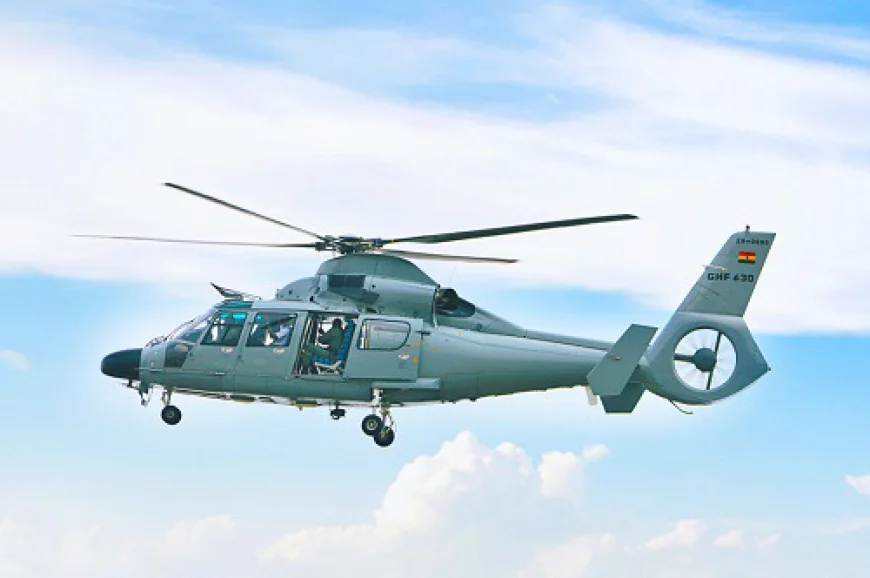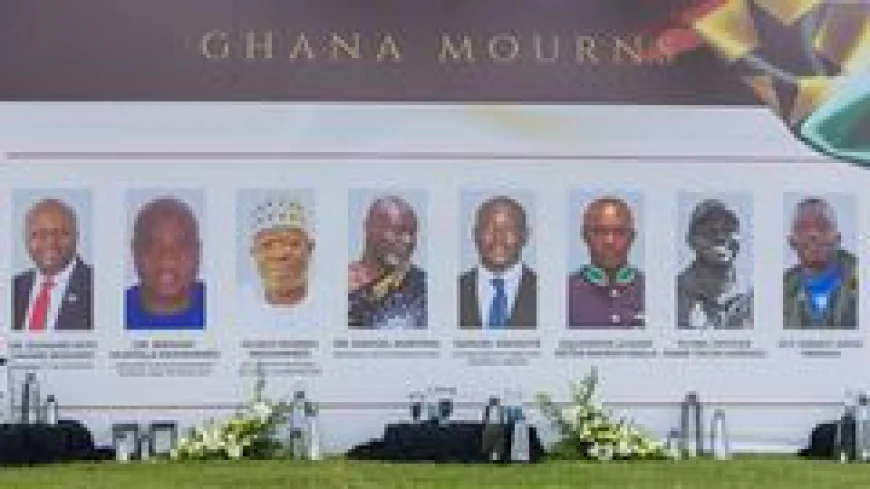Official Report Reveals What Caused the August 6 Military Helicopter Crash
The long-awaited report into the August 6 military helicopter crash has finally shed light on what caused the tragic accident that claimed eight lives, including two government ministers and senior military officers.
The long-awaited report into the August 6 military helicopter crash has finally shed light on what caused the tragic accident that claimed eight lives, including two government ministers and senior military officers.
The report, presented to President John Dramani Mahama by the National Security Coordinator, COP Abdul-Razak Osman, detailed a mix of technical malfunctions and procedural lapses that led to the disaster. The findings followed weeks of forensic examination by a multi-agency committee comprising officials from the Ghana Air Force, Ghana Civil Aviation Authority, and the Ministry of Defense.
The Ghana Air Force’s Harbin Z-9 helicopter took off from Obuasi that afternoon, en route to Accra, carrying senior officials returning from a monitoring visit. Eyewitnesses in the Adansi Akrofuom District of the Ashanti Region reported hearing unusual engine noises before the aircraft plunged into a wooded area and burst into flames. All eight occupants aboard lost their lives, and two others sustained critical injuries.
The committee’s report pointed to engine failure as the primary technical cause of the crash. Maintenance logs revealed that the aircraft had undergone limited servicing despite earlier recommendations for full inspection after repeated minor engine alerts. Investigators also found that the crew’s distress signal was delayed due to a brief communication breakdown between the aircraft and the Air Force operations control room.
While no evidence of sabotage or external interference was discovered, the report identified shortcomings in flight scheduling oversight and emergency-response coordination. It further noted that poor visibility caused by heavy harmattan haze may have worsened the pilot’s ability to perform an emergency landing.
At the presentation of the findings, President Mahama commended the investigative committee for its thorough work and assured that the recommendations would be implemented immediately. He emphasized that aviation safety within the Ghana Armed Forces must be “treated with the same urgency as national defense itself.”
The Acting Minister for Defense, Dr. Cassiel Ato Forson, confirmed that the Air Force Command has begun enforcing new safety directives — including stricter maintenance supervision, advanced pilot retraining, and a full audit of the country’s active aircraft fleet.
Meanwhile, the Ghana Air Force has suspended all non-essential flights pending a comprehensive technical review of its helicopters.
The August 6 disaster remains one of Ghana’s worst military air tragedies in decades, prompting national mourning and renewed calls for transparency in defense logistics. Officials say the government will release a public summary of the full report next week, once the National Security Council approves it.




